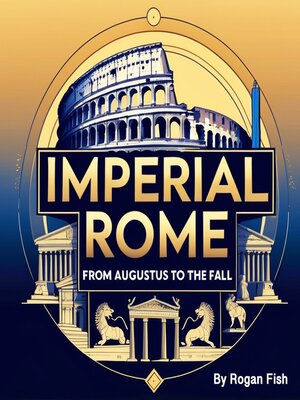
Sign up to save your library
With an OverDrive account, you can save your favorite libraries for at-a-glance information about availability. Find out more about OverDrive accounts.
Find this title in Libby, the library reading app by OverDrive.



Search for a digital library with this title
Title found at these libraries:
| Library Name | Distance |
|---|---|
| Loading... |
The fall of the Roman Republic in the late first century BCE paved the way for a new era, one defined by the leadership of a single man: Augustus. Born Gaius Octavius, he emerged as the heir of Julius Caesar and transformed Rome from a state of political turmoil into a stable empire. His rise to power was marked by strategic alliances, military victories, and significant political reforms that laid the foundation for imperial rule.
The aftermath of the Republic's collapse saw Rome in chaos. The assassination of Julius Caesar in 44 BCE triggered a power struggle between his supporters and those who sought to restore the old Republic. Octavian, as he was then known, capitalized on his status as Caesar's adopted son and formed the Second Triumvirate with Mark Antony and Marcus Lepidus. Together, they pursued and defeated Caesar's assassins, Brutus and Cassius, at the Battle of Philippi in 42 BCE. However, tensions among the triumvirs soon escalated. Lepidus was forced into retirement, and Octavian turned against Antony, who had allied himself with Cleopatra of Egypt. Their rivalry culminated in the Battle of Actium in 31 BCE, where Octavian's naval forces decisively defeated Antony and Cleopatra, leading to their eventual suicides. With no remaining challengers, Octavian stood as the unopposed ruler of Rome.
Rather than seizing power as a dictator, Octavian carefully crafted his authority to appear as a restoration of Republican values. In 27 BCE, he formally returned power to the Senate, a move that won him widespread support and the honorary title "Augustus." However, this gesture was largely symbolic, as he retained control over the military and key provinces. His governance established the principate, a system in which the emperor ruled under the guise of republican traditions while holding ultimate authority.







